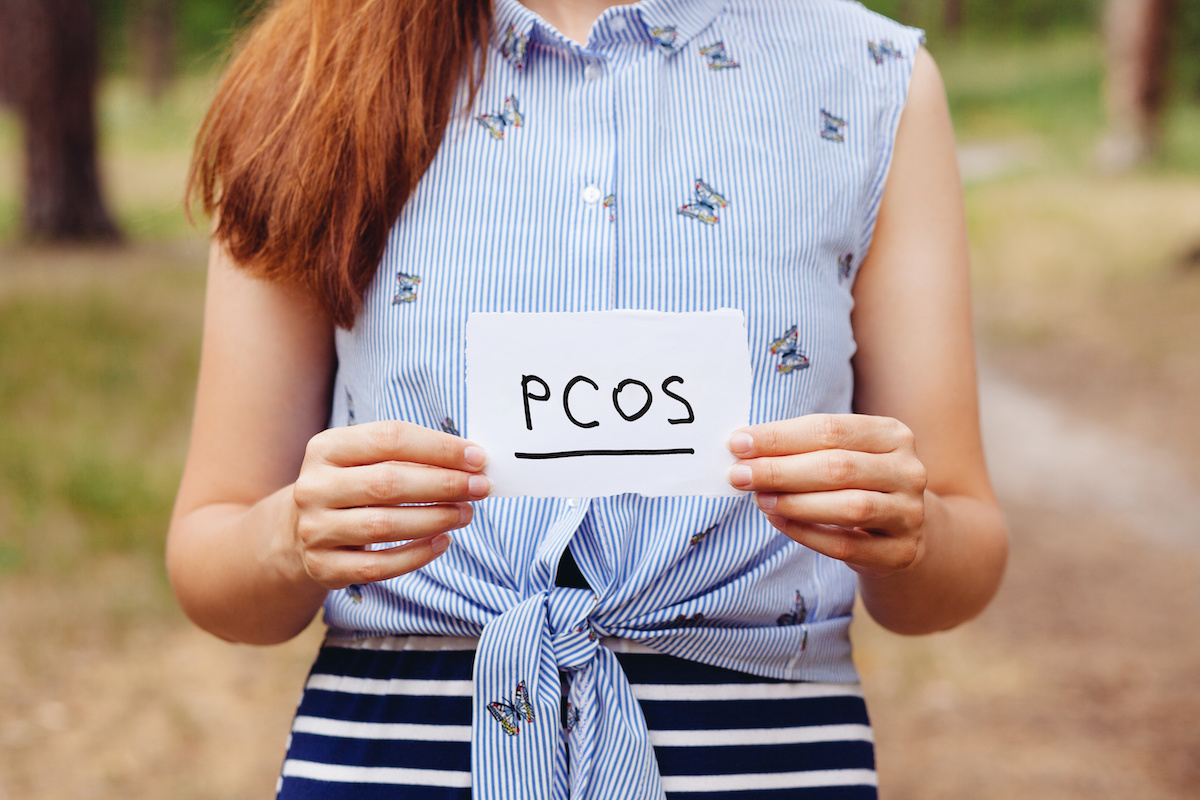By, Chelsea Fechtner, MScN, CN
PCOS affects up to 13% of reproductive-aged women and often presents with a variety of symptoms including irregular periods, unwanted hair growth, acne, and weight gain. Individuals with PCOS also experience an increased risk for anxiety, depression, and eating disorders.
Lifestyle management is the first-line treatment for improving symptoms, however many women with PCOS experience challenges with implementation partly due to the lack of evidence-based information and support. In an international study of 1,385 women with PCOS, only 12% reported feeling satisfied with the information received about lifestyle interventions from their primary heath care providers. As a result, many women are resorting to social media and internet-based sources for support, which are not always evidence-based. This creates the additional challenge of determining what will actually be helpful for managing PCOS and exposes women to potentially unhelpful and even harmful advice. Making lifestyle changes is already challenging, but with these added risks it can feel extremely frustrating and even impossible.
Despite this information, it is still possible to find good support with PCOS. Below are several strategies and resources for navigating this complex syndrome and managing your symptoms in a sustainable way.
Build a Supportive Healthcare Team
PCOS is often diagnosed using the Rotterdam Criteria. To receive the PCOS diagnosis, your healthcare provider will determine if you meet at least two out of three of the following:
1. Irregular or absent menstrual cycles
2. High androgen hormones
3. Polycystic ovaries
A PCOS diagnosis can often take many years, multiple healthcare provider opinions, and often includes extra testing such as pelvic ultrasound or bloodwork. This makes it crucial to speak up about your symptoms to receive the additional attention and support needed for diagnosis.
After a PCOS diagnosis, continued support with medical and lifestyle management may be helpful for long-term symptom reduction. Working with a Registered Dietitian, Certified Nutritionist or Health Coach that has experience with PCOS can provide additional support with lifestyle modifications.
Seek Out Evidence-Based Resources
Social media has definitely increased the quantity of PCOS resources, especially when it comes to nutrition and lifestyle modifications. Despite this advantage, the lack of quality of some of these resources can be problematic. Blogs, Instagram influencers, and other Internet based resources can provide an abundance of PCOS information. However, more often than not, these resources are not evidence-based, meaning they are not backed up by reliable research.
Before eliminating foods or food groups, starting a new supplement, or implementing another lifestyle change, it’s important to consider the potential effects on your relationship to food, your overall health, and your ability to maintain the change for a long period of time. PCOS is a life-long condition, making it essential to find nutrition and lifestyle habits that are sustainable.
Next time you see new PCOS content online, put on your investigator hat to see if it’s good quality information. Start by confirming whether the author is using credible sources and always run your nutrition and lifestyle modifications by your healthcare team for extra assurance that they are right for you.
Find a Support Group
Support groups provide many potential benefits for individuals with PCOS. Joining a support group can be helpful for navigating a new PCOS diagnosis, going through fertility treatment, or implementing lifestyle changes. Typically, a support group offers a safe space to connect with other individuals going through similar experiences, which can help participants feel less alone in their struggles and make new connections.
References:
- Cowan, S. et al. (2023) “Evidence-Based Lifestyle Guidelines and Self-Management Strategies Utilized by Women with Polycystic Ovary Syndrome,” Nutrients, 15(3), p. 589. Available at: https://doi.org/https://doi.org/10.3390/nu15030589.
- Teede, H. et al. (2018) “International evidence-based guideline for the assessment and management of polycystic ovary syndrome 2018.” Melbourne: Australia.




